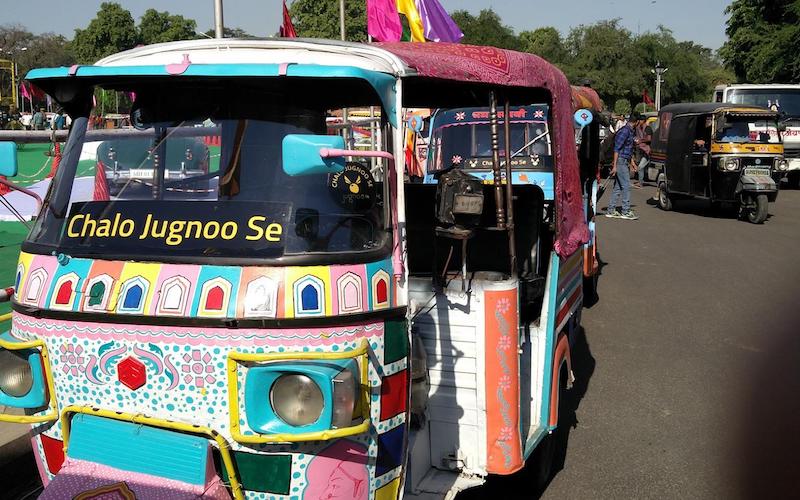Uber may have made a French exit from Southeast Asia, but the ride-hailing giant remains stuck in Singapore thanks to an ongoing investigation by the Competition and Consumer Commission of Singapore, which is still probing Grab’s big acquisition over market monopolization concerns. Uber users here can still use the app till May 7, but good luck trying to get any drivers to answer your booking — most of ‘em have already jumped ship to Grab.
With Uber’s ship in Singapore sinking (way too slowly), the sharks have been circling around to eat up the market share left wide open. Local carpooling app Ryde found some investors after launching in April, and it’s even debuting a new private-hire car service called RydeX. Indonesia’s ride-hailing behemoth Go-Jek is currently holding talks with ComfortDelGro, picking up the pieces from the shattered agreement Singapore’s largest taxi operator had with Uber.
And then there’s Jugnoo, a ride-sharing start-up from India that wants to introduce yet another disruptive innovation in the already disruptive private-hire market. In its home ground, the company specializes in auto rickshaw transportation — both on-demand rides and delivery. It’s a novel idea because auto rickshaws are aplenty in Indian cities, and they have the maneuverability of motorbikes while also being able to carry more goods than any two-wheeler.
No motorized rickshaws around here, of course, but Jugnoo is launching in Singapore on May 1 with an intriguing approach to the standard car-on-demand service, and it’s called the “reverse-bidding” model.
Reverse-bidding
We’re all familiar with the standard ride-hailing system. You book a ride on your app, and it’ll display the price you have to pay to get to your destination. If there are just too many people in the area trying to book a ride, surge pricing kicks in to match driver supply to rider demand — users either wait for a while to ease the demand or pay the high cost to get the ride, while drivers are financially encouraged to get on the road to respond to the requests.
Jugnoo does this differently. Users first make a request for a ride to a destination, and drivers nearby will bid for the ride by offering their own prices, which could be either higher or lower than the expected fare. Users will then have the option to choose from the offered bids based on the preferred price, driver’s rating, car model, or even how long they have to wait.
It’s an interesting, new concept that would attract tech-forward Singaporeans, but it’s an experimental system that could be further fine-tuned in the future.
According to TechCrunch, Jugnoo claims to have already signed up over 100 drivers and aims to get at least 500 before the service launches next week. Part of the reason the firm is expanding here was the Singapore government’s initiative to draw more potential ride-hailing services in the aftermath of Uber’s exit.
“Singapore customers are open, educated and understanding of startup models,” enthused Jugnoo founder and CEO Samar Singla.




